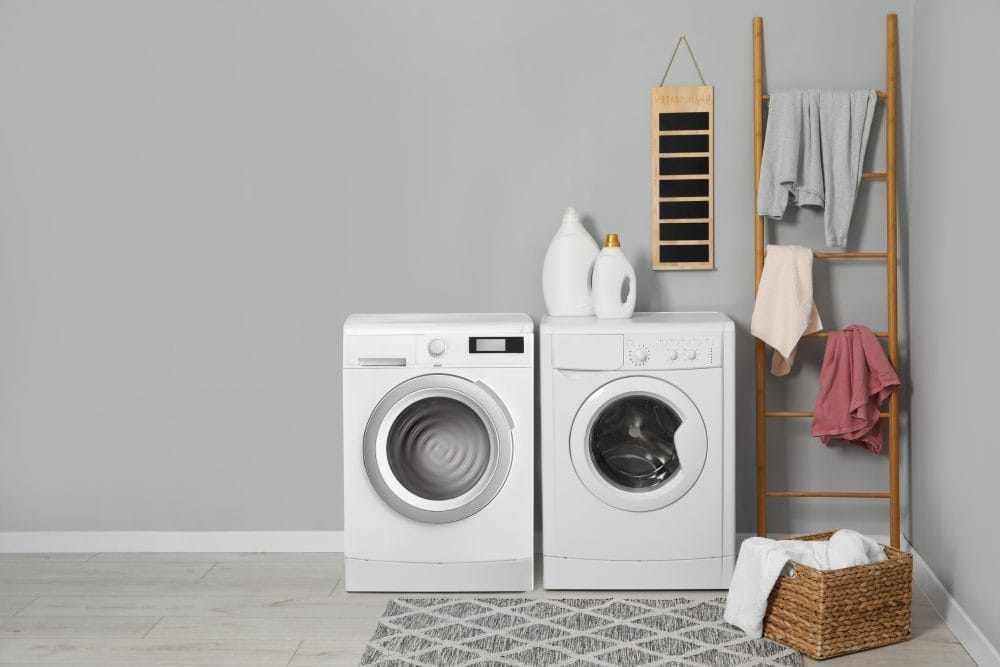In a world where inflation keeps stretching every dollar and brand-new appliances come with eye-watering price tags, buying used might just be the smartest move a budget-conscious shopper can make.
Whether it’s a second-hand washer, a gently used refrigerator, or a pre-owned oven, many of these appliances still have years of life left in them—and they often come at a fraction of the cost.
Used Appliances May Be Key To A Happy & Functional Home
But finding a reliable used appliance isn’t as easy as scrolling through an online marketplace and handing over some cash. There are risks involved: hidden damage, misleading ads, and sellers who vanish once the deal is done. That’s why it’s crucial to shop with a clear strategy, so you walk away with not just a deal, but peace of mind.
Know Where to Shop
Reputable sources are the first line of defense when buying used appliances. Local appliance stores that offer refurbished items, Habitat for Humanity ReStores, and certified resellers often test and clean used products before selling them. Online marketplaces like Facebook Marketplace and Craigslist can also yield great finds, but buyers should approach them with caution.
Always meet in public or well-lit locations if picking up from an individual seller, and try to avoid transactions that feel rushed or vague. Retailers who offer warranties, even limited ones, are a safer bet than anonymous sellers with no accountability.
Check the Age and Model
Before committing to a used appliance, it’s essential to check how old it is and which model you’re dealing with. Manufacturers often provide lifespan estimates—for example, refrigerators typically last 10-15 years, while dryers may go strong for 8-12 years. Looking up the model number online can reveal helpful information, including common issues, discontinued parts, and energy efficiency ratings.
This quick research can save future headaches and unexpected repair costs. If the appliance is nearing the end of its expected life, even a rock-bottom price may not be worth it.
Inspect and Test Before Buying
Physical inspection and testing can reveal more about an appliance’s condition than any photo or description ever could. Plug it in if possible—watch for strange noises, look for leaks, and test key functions like temperature controls, spin cycles, or burners. Check the exterior for rust, dents, and missing parts, but don’t forget to open doors, pull out trays, and inspect cords or hoses for wear. An appliance that looks clean and runs smoothly is often a sign of regular maintenance and careful use. If the seller resists a test run or seems evasive, consider it a red flag and move on.
Ask About History and Repairs
Knowing the history of the appliance can provide crucial context that helps determine its remaining value. Ask how long the previous owner used it, whether it was in regular operation, and if it has undergone any repairs. Well-documented maintenance or professional servicing is usually a good sign and may indicate the appliance was taken care of.
On the flip side, a vague or overly dramatic repair history might signal trouble down the line. Honest sellers should be willing to answer basic questions and offer transparency about the appliance’s past.
Factor in Delivery and Installation Costs
Saving money on the purchase price is great, but it’s easy to forget about additional expenses like delivery and installation. Moving large appliances often requires special equipment, trucks, or even professional movers—especially if stairs or tight spaces are involved.
Some sellers offer local delivery for an extra fee, but it’s wise to confirm those details before agreeing to buy. Installation can also require special tools, hoses, or wiring, and a professional technician might be needed to avoid damage or safety hazards. When budgeting for a used appliance, always consider the full picture, not just the upfront cost.
Don’t Be Afraid Of Used Appliances
Shopping for used appliances can be a smart, strategic move for anyone looking to save money without sacrificing quality—but it takes a little homework and a lot of attention to detail. From choosing trustworthy sellers to inspecting machines thoroughly and asking the right questions, each step helps minimize risk and maximize savings.
Buying used isn’t just about frugality; it’s about being a thoughtful, informed consumer. When done right, it can feel just as rewarding as buying brand-new—only with far less strain on your wallet. Got any tips or success stories from your own experience buying used appliances? Share them in the comments and help others make smarter choices too.
Read More
How to Budget for Your Home Renovation Effectively
Step Up Men: Washing Clothes and Doing The Dishes Are No Longer Just Women’s Chores







